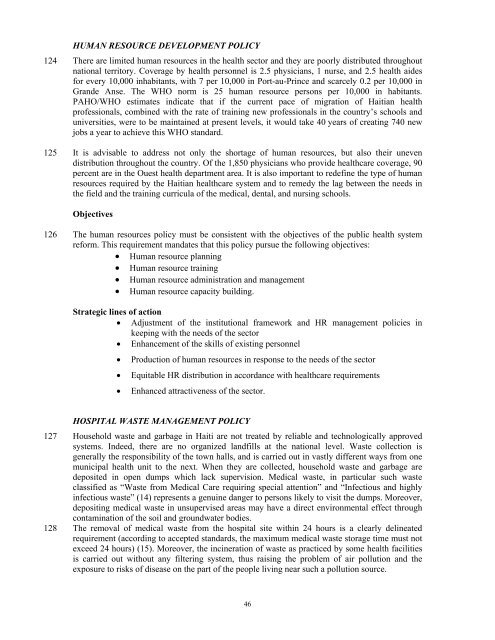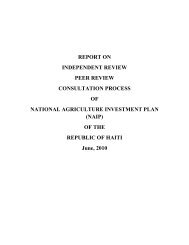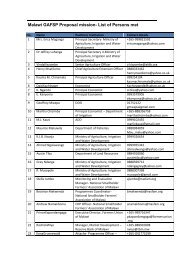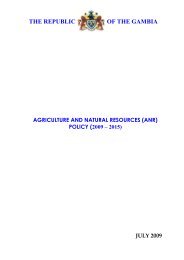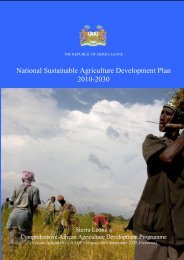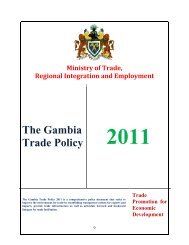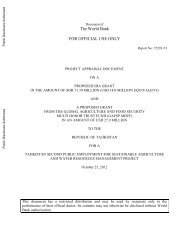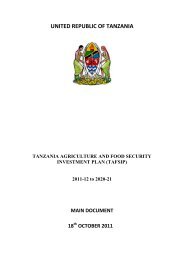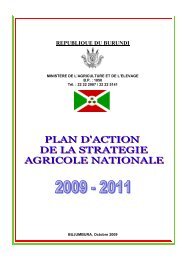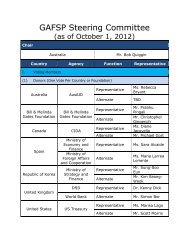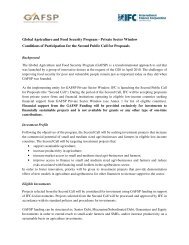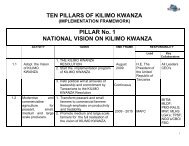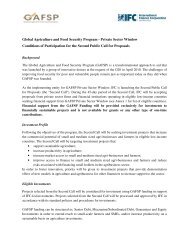Haiti: Poverty Reduction Strategy Paper; IMF Country Report 08/115 ...
Haiti: Poverty Reduction Strategy Paper; IMF Country Report 08/115 ...
Haiti: Poverty Reduction Strategy Paper; IMF Country Report 08/115 ...
You also want an ePaper? Increase the reach of your titles
YUMPU automatically turns print PDFs into web optimized ePapers that Google loves.
HUMAN RESOURCE DEVELOPMENT POLICY<br />
124 There are limited human resources in the health sector and they are poorly distributed throughout<br />
national territory. Coverage by health personnel is 2.5 physicians, 1 nurse, and 2.5 health aides<br />
for every 10,000 inhabitants, with 7 per 10,000 in Port-au-Prince and scarcely 0.2 per 10,000 in<br />
Grande Anse. The WHO norm is 25 human resource persons per 10,000 in habitants.<br />
PAHO/WHO estimates indicate that if the current pace of migration of <strong>Haiti</strong>an health<br />
professionals, combined with the rate of training new professionals in the country’s schools and<br />
universities, were to be maintained at present levels, it would take 40 years of creating 740 new<br />
jobs a year to achieve this WHO standard.<br />
125 It is advisable to address not only the shortage of human resources, but also their uneven<br />
distribution throughout the country. Of the 1,850 physicians who provide healthcare coverage, 90<br />
percent are in the Ouest health department area. It is also important to redefine the type of human<br />
resources required by the <strong>Haiti</strong>an healthcare system and to remedy the lag between the needs in<br />
the field and the training curricula of the medical, dental, and nursing schools.<br />
Objectives<br />
126 The human resources policy must be consistent with the objectives of the public health system<br />
reform. This requirement mandates that this policy pursue the following objectives:<br />
• Human resource planning<br />
• Human resource training<br />
• Human resource administration and management<br />
• Human resource capacity building.<br />
Strategic lines of action<br />
• Adjustment of the institutional framework and HR management policies in<br />
keeping with the needs of the sector<br />
• Enhancement of the skills of existing personnel<br />
• Production of human resources in response to the needs of the sector<br />
• Equitable HR distribution in accordance with healthcare requirements<br />
• Enhanced attractiveness of the sector.<br />
HOSPITAL WASTE MANAGEMENT POLICY<br />
127 Household waste and garbage in <strong>Haiti</strong> are not treated by reliable and technologically approved<br />
systems. Indeed, there are no organized landfills at the national level. Waste collection is<br />
generally the responsibility of the town halls, and is carried out in vastly different ways from one<br />
municipal health unit to the next. When they are collected, household waste and garbage are<br />
deposited in open dumps which lack supervision. Medical waste, in particular such waste<br />
classified as “Waste from Medical Care requiring special attention” and “Infectious and highly<br />
infectious waste” (14) represents a genuine danger to persons likely to visit the dumps. Moreover,<br />
depositing medical waste in unsupervised areas may have a direct environmental effect through<br />
contamination of the soil and groundwater bodies.<br />
128 The removal of medical waste from the hospital site within 24 hours is a clearly delineated<br />
requirement (according to accepted standards, the maximum medical waste storage time must not<br />
exceed 24 hours) (15). Moreover, the incineration of waste as practiced by some health facilities<br />
is carried out without any filtering system, thus raising the problem of air pollution and the<br />
exposure to risks of disease on the part of the people living near such a pollution source.<br />
46


